CAN YOU HELP US?We are URGENTLY seeking experts to represent the collective European consumer voice in: - standardisation work in CEN/TC 333 on bicycles and related items (EPACs, cargo bikes, etc.) - standardisation work in CEN/TC 278 on intelligent transport systems (ITS) - standardisation work in ISO/TC 324 on the sharing economy We are able to offer a daily allowance for remote participation in meetings during 2022, as well as reimbursement of real costs where face-to-face participation is required (subject to the ANEC Guide on Reimbursement of Travel Expenses). For further details, please contact the ANEC Secretariat at This email address is being protected from spambots. You need JavaScript enabled to view it. as soon as possible. |
Lead story
Standardisation Strategy
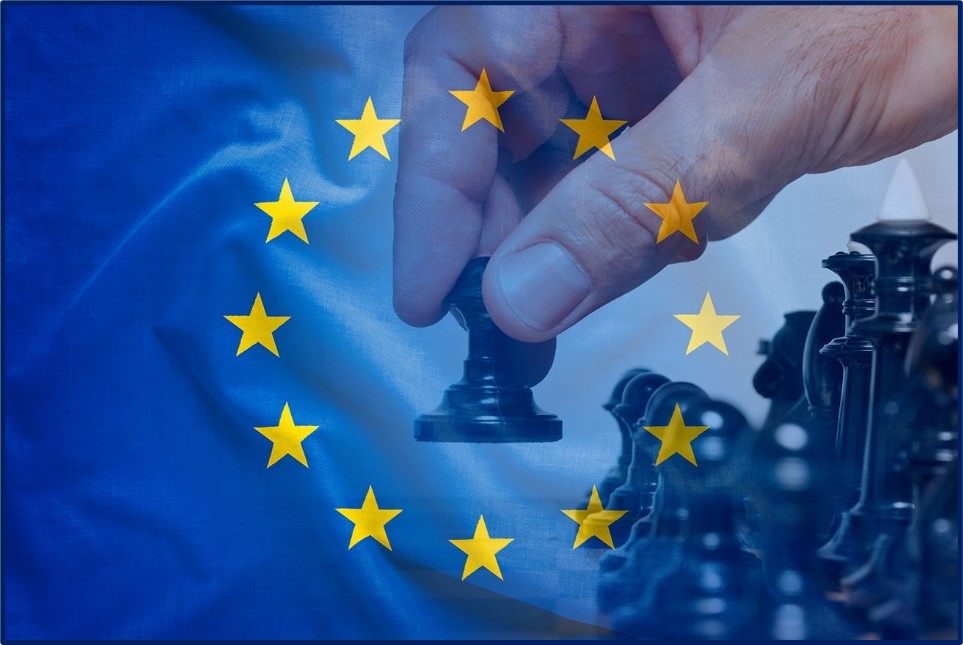
Amendment to Regulation (EU) 1025/2012
On 2 February 2022, the European Commission (EC) issued a new Standardisation Strategy, including a proposal for a “technical amendment” to Regulation (EU) 1025/2012. A public consultation was open on the amendment until 7 April.
The aim of the amendment is to address the geopolitics of standardisation, on which there is a new emphasis. The EC expresses concern at the influence non-European companies can have on decisions taken by the European Standardisation Organisations (ESOs) related to the adoption of Standardisation Requests, and on the supporting Harmonised Standards used to implement EU policies and legislation. The EC believes these decisions should be limited to National Standardisation Bodies (NSBs) in the EEA countries, especially noting that the European Court of Justice (ECJ) considers Harmonised Standards to be part of EU law.
ANEC supported the EC proposal in its reply to the consultation. However, we stressed the need to ensure the votes of the NSBs themselves reflect only European interests. See our comments (https://bit.ly/38A6QJC), and media release (https://bit.ly/3ue52hM).
ETSI creates WG INCLU
The Standardisation Strategy places particular emphasis on broadening the inclusiveness of the standards development process in the ESOs, to address the “uneven and intransparent representation of industrial interests” and increase “the involvement of SMEs, civil society and users”. Indeed, the EC has called on the ESOs to make proposals by the end of 2022 on modernising their governance.
Noting this, and to address inclusiveness as an element of the ETSI Strategy, the ETSI Board has created the Board INCLU WG with the aim of improving ETSI's inclusiveness towards all relevant stakeholders. The Board appointed John Ketchell, ETSI 3SI Advocate (and Chair of the ANEC Digital Society WG) as Chair of WG INCLU. The WG is open to Board members, the Annex III organisations, the European Commission and EFTA secretariat among others.
The kick-off meeting of WG INCLU was held on 30 March, ahead of monthly meetings.
EESC expert group hearing
On 18 March, ANEC Secretary-General, Stephen Russell, was one of the experts called on to speak at a hearing of the European Economic & Social Committee (EESC), examining the European Standardisation System (ESS), and role of standards for the twin transitions and the competitiveness of the EU.
Mr Russell recalled the requirement for the ESS to be inclusive is unique in the world and worth reinforcing. He added that a product or service that meets an inclusive standard not only benefits European society, but should offer European business an advantage on the global stage. He stressed the importance of consumer participation in achieving the revision of the EN 60335-2 series of standards for domestic appliances. Thanks to ANEC, millions of domestic appliances sold annually in Europe were now safer and more accessible. He added that, without inclusiveness, the focus of business (knowingly or unknowingly) would be on the mainstream consumer, and not the needs of vulnerable consumers (children, older people and persons with disabilities).
Although appreciating the support given by the EU and EFTA to the participation of under-represented stakeholders in standardisation , he regretted few Member States had put in place the political and financial frameworks to support participation at national level. This was of particular concern, as the Standardisation Strategy foresaw support from Member States as key in the participation of under-represented stakeholders in future international standardisation (ISO/IEC), and the national delegation principle was still fundamental.
Mr Russell ended by supporting the proposed amendment to Regulation (EU) 1025/2012, but called on the EC to reserve its right to develop “common specifications” if the needed Harmonised Standards were not developed or proved inadequate in defending the European public interest.
Horizontal
Meeting ISO and IEC in Geneva
On 29 March 2022, ANEC Secretary-General Stephen Russell, together with representatives from our peer Annex III organisations - Maitane Olabarria (SBS), Justin Wilkes (ECOS) and Guido De Jongh (ETUC) - met in Geneva with IEC General-Secretary Philippe Metzger, ISO Secretary-General Sergio Mujica, and members of their management teams.
The meeting focussed on an in-depth discussion of the ISO and IEC strategies, and especially their aims to promote inclusivity and diversity of stakeholder representation within the IEC and ISO systems. There was also discussion of the EU Standardisation Strategy.

ETSI magazine focus on inclusiveness
Inclusiveness and diversity are the central themes of the latest issue of the ETSI quarterly magazine, “Enjoy” (https://bit.ly/3LSRRc2). The magazine features an interview with ANEC Secretary-General, Stephen Russell, who explains why consumer participation in ICT standardisation is important.
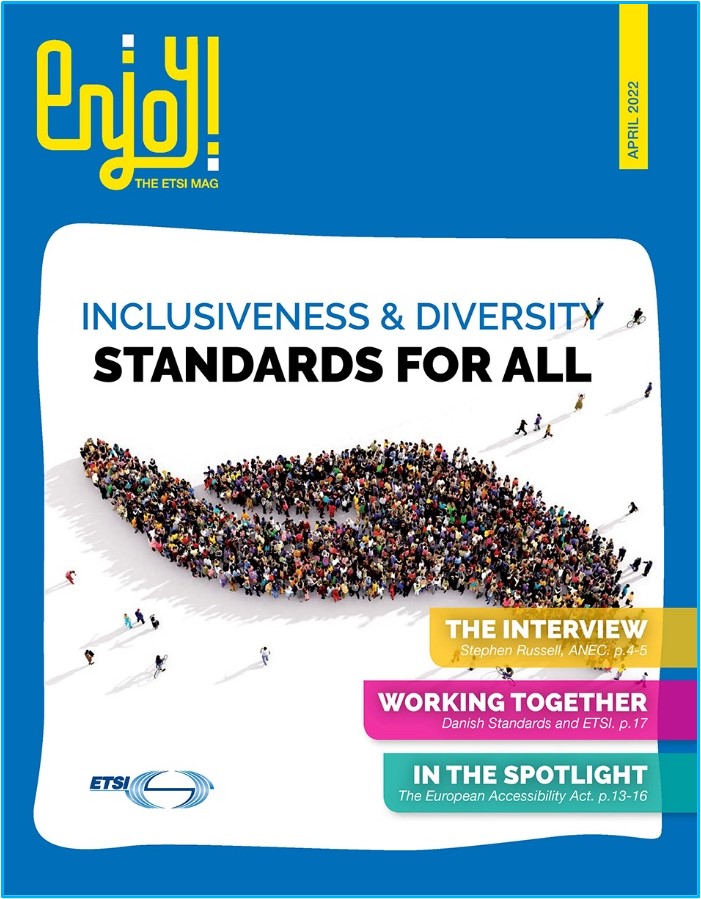
Child Safety
ANEC Child Safety WG meets
The annual meeting of the ANEC Child Safety Working Group was held remotely on 24-25 March and attended by 19 experts.
Our experts discussed achievements, upcoming challenges and priorities in standardisation work on toys, sports & playground equipment, childcare articles & children’s furniture, and other products related to child safety. Specific discussions were held on trampoline parks, zip lines, push chairs, carry cots, baby nests, ride-on-toys and the use of activity toys in domestic pools. Experts also discussed topics of horizontal nature, such as access to button batteries, use of household appliances by children, digital product information and finger entrapment. The WG was also updated on the ongoing revision of the General Product Safety Directive, and the upcoming revision of the Toy Safety Directive.

ANEC asks CEN to address baby nests
Following the meeting of the Child Safety WG, ANEC wrote to CEN TC 252 WG2 ‘Childcare articles - Sleeping, relaxation and lying down’ with a request to address the safety of babies using baby nests (also known as pods). Our experts believe there are hazards associated with these products which are similar to those that exist for carry cots, especially the risk of suffocation.
Reviewing products that are on the market, there are marked similarities in terms of the shape of some carry cots and baby nests. In many cases, the only apparent difference is that carry cots have handles, whereas baby nests do not. Apart from the carrying function, both products are used for the unattended sleeping of the child.
As work is starting to develop a standard for so-called soft carry cots, we believe this would be a good opportunity to add baby nests to the discussions. Since 2016, there have been several notifications of baby nests to the EU Safety Gate with suffocation, strangulation and choking hazards being noted.
The safety of baby nests was also examined in the ANEC Technical Study ‘Investigating Safe Sleeping Conditions for Children’ (https://bit.ly/3K6XTo0), published in 2018.
As baby nests are unnecessary and potentially hazardous in our opinion, one concern is that developing a standard for them could give them a respectability that they do not deserve. However, as baby nests are widely available and popular, we recognise that improving their safety is the more important consideration.
Our proposal was well-received and a first discussion took place at the CEN TC 252 WG2 meeting on 12 April.

Accessibility
Draft SReq on lifts
In December 2021, the EC issued a new standardisation request (SReq) as regards lifts and safety components for lifts, in support of Directive 2014/33/EU. In March, ANEC commented on the draft SReq, in particular on the standards required for the safety and accessibility of lifts, taking into account those existing standards which need to be revised to reflect changes in the state-of-the-art.

For example, ANEC supports the clear indication about the necessary consideration of a wide range of users to enable two-way means of communication with a rescue service, referring to low vision and blind persons, hard-of-hearing and deaf persons, older people, and persons with cognitive impairments. However, we think speech-impaired persons need to be added to the list.
ANEC welcomes EN 81-70:2021/A1
CEN has adopted the amendment to EN 81-70 ‘Safety rules for the construction and installation of lifts - Particular applications for passenger and goods passenger lift - Part 70: Accessibility to lifts for persons including persons with disability’. The amendment solves our appeal of 2017 in which were critical of the contrast requirements for lift buttons. Given this standard aims at improving accessibility, we and the disability movement saw it as a test of whether standardisation can meet the needs of people of all ages and abilities.
We were pleased the EC decided not to cite the present version of EN 81-70 in the OJEU as providing a presumption of conformity, but to wait for the amendment to be ready and adopted.

Sustainability
Circular Economy Package revealed
On 30 March, the EC published a major package of Circular Economy measures (https://bit.ly/3v7DAmr). These include:
- a proposal for a Regulation on Ecodesign for Sustainable Products (https://bit.ly/37xyBm3)
- the Ecodesign and Energy Labelling Working Plan 2022-2024 (https://bit.ly/3F5dhR9)
- an EU Strategy for Sustainable and Circular Textiles (https://bit.ly/3LaaYOK)
- a proposal on the revision of the Construction Product Regulation (https://bit.ly/3vFDq4w)
In parallel to these environmental measures, it was also proposed to update the EU consumer rules to empower consumers for the green transition:
- New consumer rights and a ban on greenwashing (https://bit.ly/3MrZGWC). These include a new right for information on the guaranteed durability and information on repairability of products.
Several novelties that will enable more sustainable consumption are put forward, and we are keen on following and contributing to the next steps on areas of our relevance.
We especially welcomed the revision of the Ecodesign directive and gave our initial assessment.

Proposal for revision of Ecodesign framework
We welcome Ecodesign being in the spotlight in the new Circular Economy package as a means to achieve more sustainable products. It is now crucial for the tool to be supported with appropriate governance and resources.
Nevertheless, we do have comments on the main points of the proposal for the Regulation on Ecodesign for sustainable products (which will supersede the Ecodesign Directive).
- The Circular Economy Package extends the scope of Ecodesign to almost all products going beyond energy efficiency, while rightly prioritising environmental impacts and potential benefits. The ambition is set for consumers to have access to more durable, reliable, repairable and upgradable products.
- Interestingly, in the parameters, the proposal refers to expressing durability and reliability through a product’s guaranteed lifetime, among other criteria.
- The proposal excludes the possibility to restrict the presence of substances based on chemical safety only. Nonetheless, transparency on the presence of substances of concern would be increased.
- The proposal puts emphasis on introduction of information requirements (with classes of performance) and new labelling measures through the digital product passport. Information plays an important role but we consider the focus of Ecodesign needs to remain on environmental performance requirements.
- The proposal requires companies to disclose the number of unsold products and reason for discharging them.
- Efforts are made to strengthen market surveillance, including increased cooperation between market surveillance authorities and market actors, especially regarding online marketplaces.
- Voluntary agreements (VAs) are still presented as an alternative to Delegated Acts, despite the negative experience with current voluntary agreements which are not ambitious nor faster to develop.
In our media release (https://bit.ly/3rK0D4o), we welcome the proposal, while also addressing points that need improvement, especially relating to role still given to VAs and information provision.
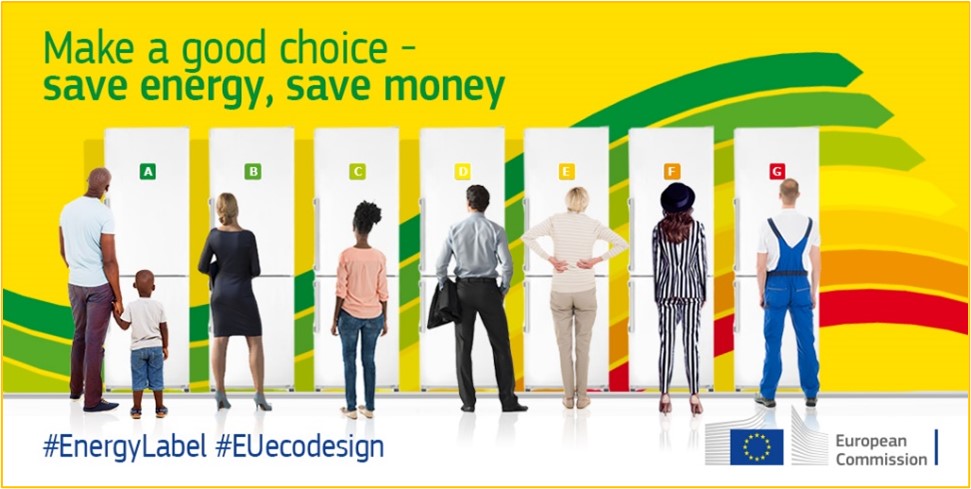
Proposal for revision of the EPBD
ANEC recognises some improvements have been made to the EC proposal for revision of the Energy Performance of Buildings Directive (https://bit.ly/3vFPxOW) compared with the present legal text.
However, there are still several points where we believe more ambition is required to effectively boost renovation of buildings in the EU, lower CO2 emissions and achieve more energy savings.
There is a need to act urgently and boldly on climate change. Time is of the essence. This can be done by not only improving the energy efficiency of buildings, but also by phasing out the use of fossil fuels and encouraging the generation of renewable energies on site (e.g. with solar systems). Against this background, the EU climate targets can be supported through the EPBD revision by boosting the renovation rates in a manner that is truly suitable for the environment and (vulnerable) consumers.
We addressed the key issues in our response to the EC public consultation in March and we give specific recommendations in our new ANEC Position Paper on the EC Proposal for a Revision of the Energy Performance of Buildings Directive (https://bit.ly/3rMsMYF).

Digital Society
EP adopts position on mobile chargers
ANEC has campaigned for a common charger for smart phones and other portable devices for over a decade, in order to streamline the multitude of options forced upon consumers, promote sustainability and reduce e-waste. We were therefore delighted by the position agreed by the Internal Market and Consumer Protection Committee (IMCO) of the European Parliament (EP) on 20 April. The USB Type-C port will be mandatory for portable devices, with the harmonisation of wireless charging ensured in the future.
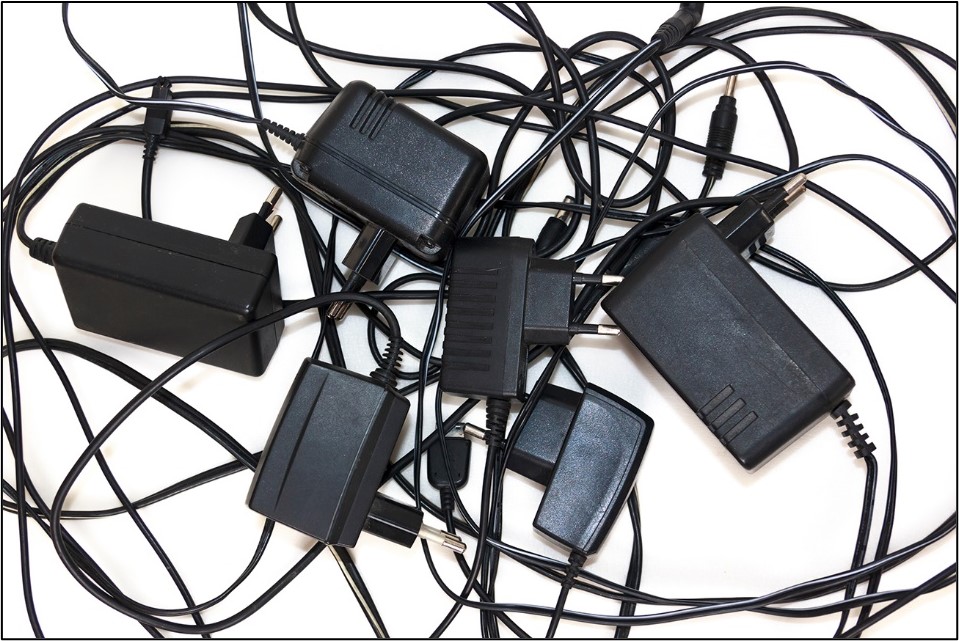
MEPs agreed to enlarge the scope of the EC proposal to include handheld videogame consoles, keyboards, mice, screens, printers, portable speakers, portable navigation devices, digital radios, smart watches, wearable and health trackers, personal care devices, most sports equipment and electronic toys.
Exemptions would apply only to devices that are too small to host a USB Type-C port, such as smart watches, health trackers, and some sports equipment. MEPs also agreed on the provision of information and labelling to consumers on charging options, as well as whether a product is sold with a charger.
MEPs asked the EC to present a strategy by the end of 2026 that allows for minimum interoperability of any new charging solutions (such as wireless charging). The goal is to avoid a fragmentation in the market, to reduce environmental waste, ensure consumer convenience and avoid so-called “lock-in” effects created by proprietary charging solutions.
We shall continue to follow the next steps of the legislative procedure (trialogue negotiations among Parliament-Council-Commission) to ensure that common chargers become a reality for consumers as soon as possible.
ANEC Digital Society WG meets
The 39th ANEC Digital Society WG meeting took place remotely on 21 March.

The EU Standardisation Strategy and the proposed amendment of Regulation (EU) 1025/2012 were discussed.
Among other topics, the WG discussed the Radio Equipment Directive (Directive 2014/53/EU): privacy and security by design delegated act/standardisation request; ANEC comments on the role of standards in the AI Act, as well as the ANEC comments on RED Cyber SReq.
Last, but not least, we were very pleased to welcome a speaker from the EC giving a detailed presentation of the future AI Act SReq.
ANEC comments on ISO DIS 31700
ANEC commented on ISO DIS 31700 ‘Consumer protection – Privacy by design for consumer goods and services’, developed by ISO PC 317.
We stressed that the understanding of ”use case” (description of a sequence of interactions between a consumer and a system (e.g., IT or business process component) used to help identify, clarify, and organise requirements to support a specific business goal) differs from the meaning of the ”use case” in the draft standard. This difference could mislead stakeholders in understanding the requirements. A use-case is used as an example for stakeholders in how to implement requirements.

We also suggested adding functional requirements and change the explanation of the definition ”end of use”, as consumers can change a product not only when it when it fails to satisfy privacy requirements, and the definition ”end of use” is likely to mean a process, not an object.
The standard was approved and should now proceed to the next stage (final approval).
Services
World Consumer Rights Day 2022
This year’s World Consumer Rights Day (15 March 2022) was dedicated to the topic of Fair Digital Finance. See (https://bit.ly/3K8x7vI).
Again this year, ANEC joined the global WCRD campaign which focused on “Fair Digital Finance and its strategy on how consumer advocacy can raise awareness and mobilise change among marketplace stakeholders on behalf of consumers across the world.”
To mark the occasion, we launched a social media campaign on how to achieve fair digital finance by integrating sustainability considerations including environmental, social and governance aspects.
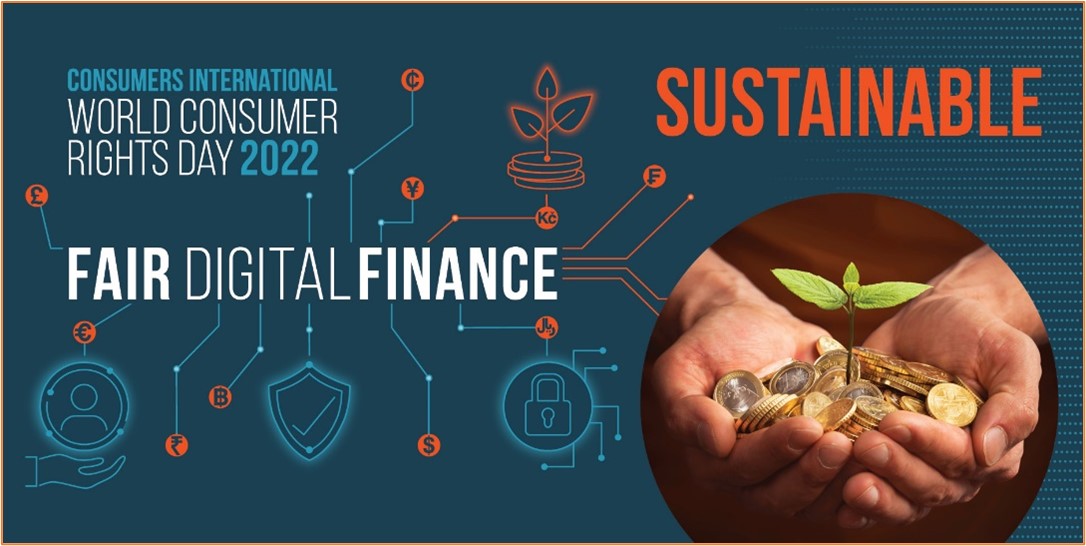
News from ANEC member countries
DENMARK
Tests reveal further risks to consumers
Tests carried out by our colleagues at Danish Consumer Council THINK Chemicals have revealed the presence of unwanted chemicals in melamine cups, and confirmed the risks from detergents.
Parents tend to prefer sturdy, melamine tableware for obvious reasons but are unaware of the risks of chemical leakage. Melamine plastic can degrade over time due to wear or high temperatures, releasing substances of risk. Hence we advise consumers to discard tableware or other food contact material if it looks worn. More information can be found at https://bit.ly/3xNkhAy.

If you do washing-up by hand, you should be aware that detergents sometimes include perfumes that can cause allergies. Some products contain the allergenic preservative benzisothiazolinone which is not allowed in hand soap. Consumers are advised to limit their exposure to perfumes which will reduce their risk of developing skin allergies, or to wear gloves when washing-up by hand. More information can be found at https://bit.ly/3K6zXkO.
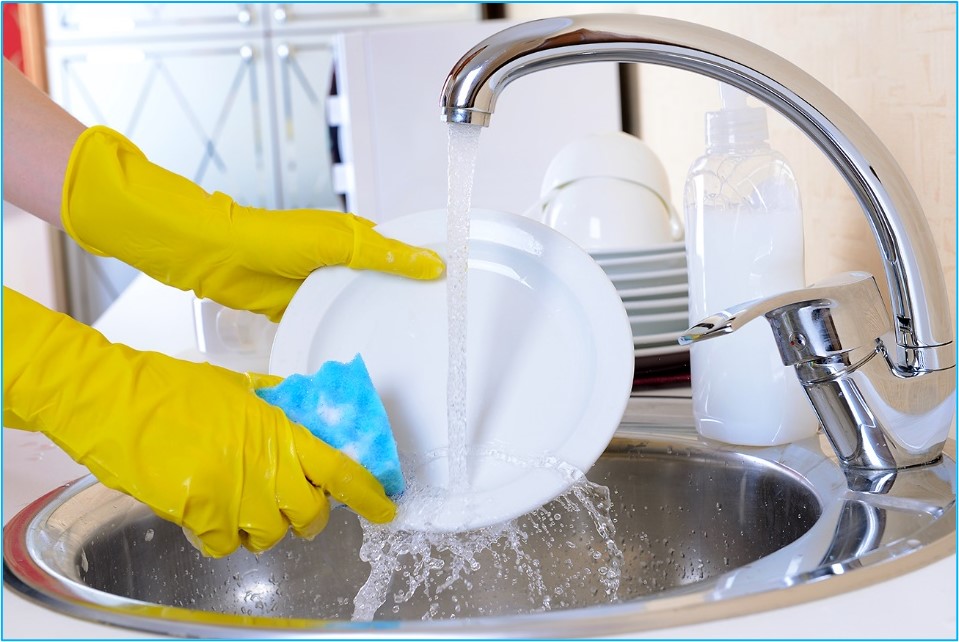
| List of meetings 2022 |
For comments or if you wish to write an article for the ANEC Newsletter, please contact: Marijana ANTAROROVA (This email address is being protected from spambots. You need JavaScript enabled to view it.).


